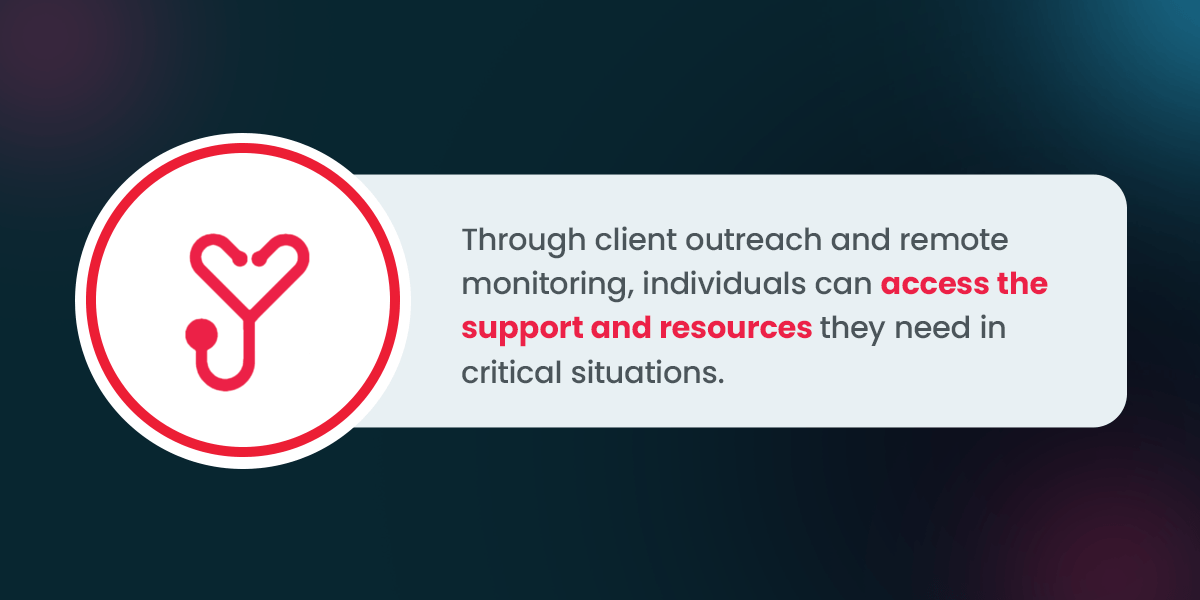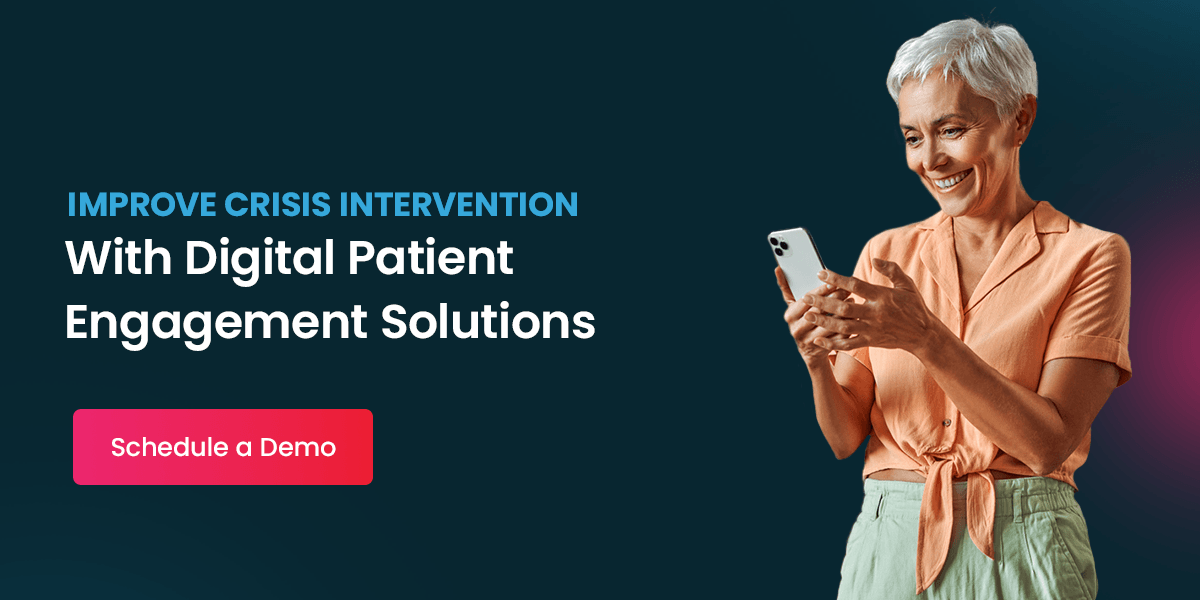Features Supporting Crisis Management
Digital engagement solutions have several features that can support crisis intervention strategies:
Automated Communication
Digital patient engagement platforms send automated reminders and links for appointments, digital intake forms and video conferences. By providing clients with immediate access to essential mental health education resources, the digital solution can reduce missed appointments and allow for timely intervention. Engagement platforms proactively keep clients informed and engaged in their care — promoting better health outcomes during critical moments.
Digital Intake Forms and Support
Patient engagement solutions offer quick access to digital intake forms via text messages. This can streamline assessments during a crisis, as clients can easily complete forms from their phones. It also reduces the time your practice spends on paperwork and leads to faster evaluations. This immediate access is critical in high-stress situations, as it can minimize delays and ensure your clients get the care they need as soon as possible.
Community Connection
Engagement platforms facilitate group therapy sessions and offer links to local crisis intervention resources. Your clients can quickly access these crucial resources in times of need:
- Group therapy: Group therapy offers a space for your clients to connect with others going through similar challenges. In the safe, virtual space, they can share experiences and offer mutual support, fostering a sense of belonging that is essential in a crisis. Integrating these video appointments into the platform also ensures that your clients can quickly access resources that complement their individual treatment plans.
- Community resources: Engagement platforms can provide links to local support services and crisis intervention resources directly through text messages. This ensures your clients have easy access to critical help. Whether it’s a hotline, a nearby counseling center or community support groups, mental health education resources are just a click away.
Follow-up and Ongoing Support
Engagement platforms send out automated reminders for follow-up appointments, which can gently encourage clients to engage with care and attend necessary appointments. Consistent messaging can emphasize the importance of ongoing treatment and support their long-term recovery. Additionally, remote client monitoring through texts can help you spot clients needing support. The platform analyzes response rates and appointment attendance so you can tailor your client outreach efforts and clients get the help they need.
Empowering Providers
The platform offers comprehensive training and resources for providers so they can effectively use the system during crisis situations. Training will include best practices for engaging clients, learning the system’s features and interpreting data insights. The platform allows seamless communication among your care teams, making it easy to coordinate your crisis interventions. Through messaging and collaboration tools, you can share real time updates, discuss client progress and come up with care plans — promoting better client outcomes and quick care delivery.
Data-Driven Insights
Engagement solutions also include client data management tools and tracking and analyzing crisis intervention cases. By collecting response times, client demographics and treatment effectiveness, you can spot trends and develop personalized care approaches for better outcomes. You can also collect client feedback to learn what works and what needs improvement. Ultimately, data-driven insights can help you enhance the quality of your crisis services and build trust with clients.


